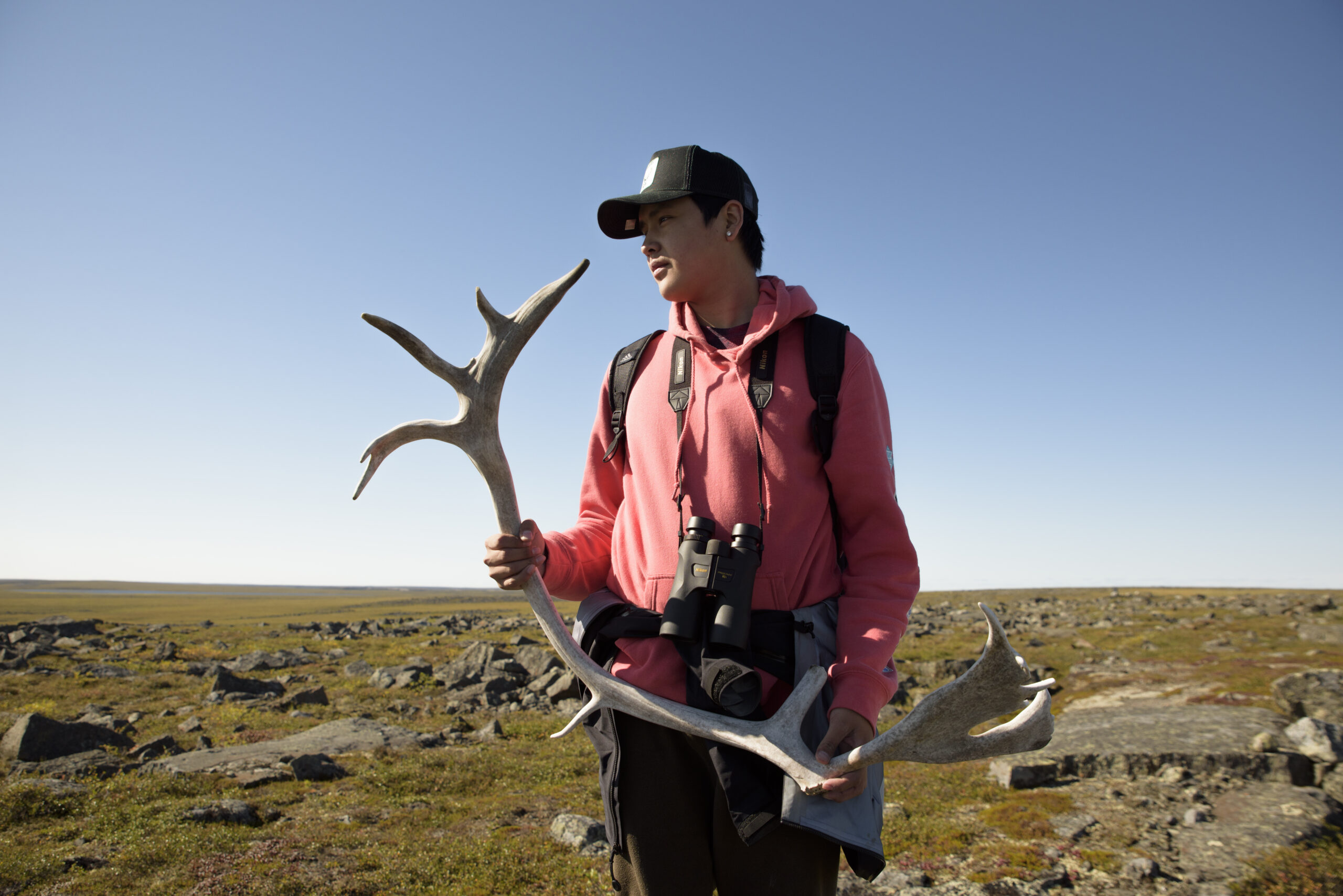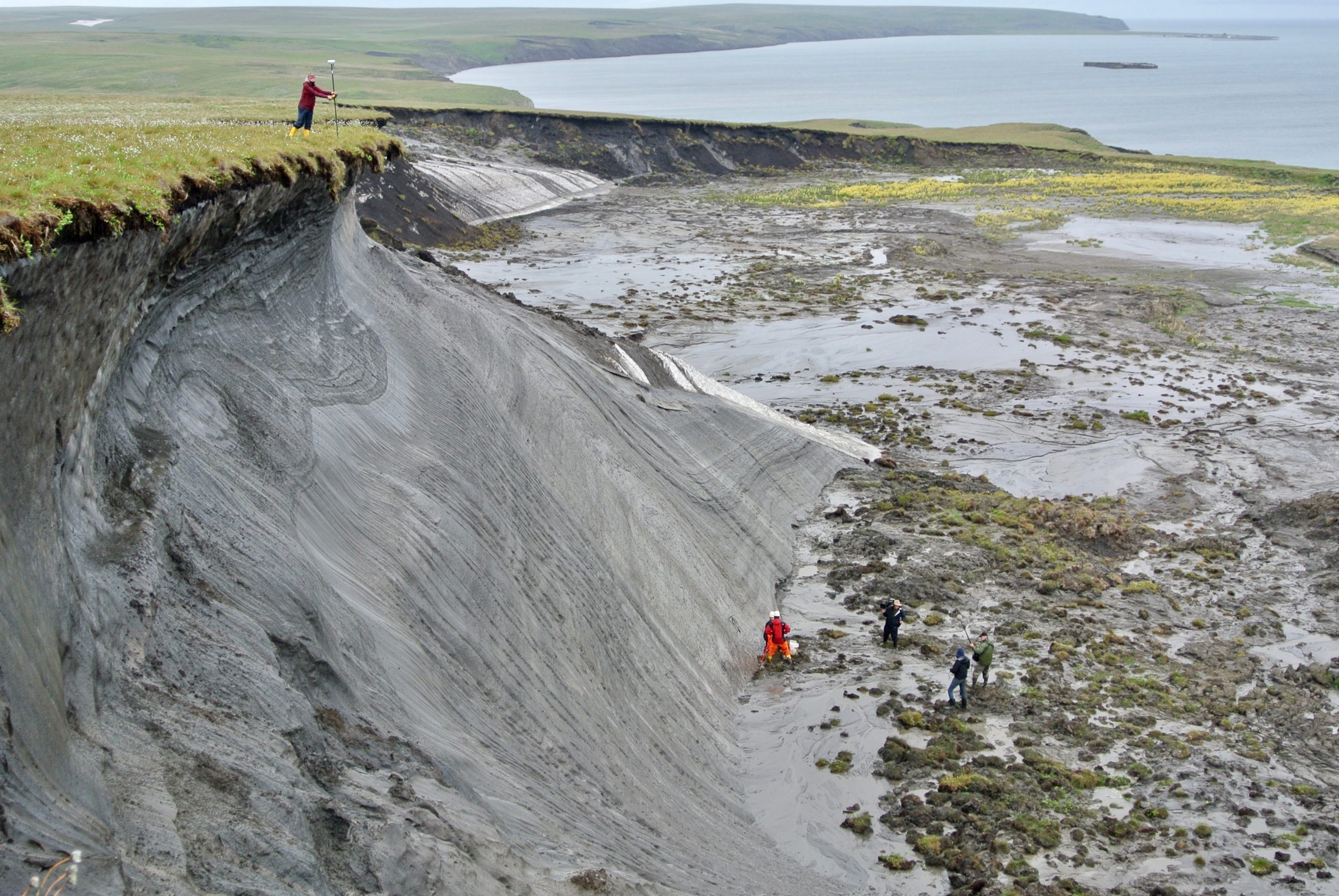Hold corporations accountable for reconciliation in climate rules, First Nations finance group says
Hold corporations accountable for reconciliation in climate rules, First Nations finance group says
The First Nations Financial Management Board called on the federal government to ‘immediately’ invite Indigenous Rights holders to the table to collaborate on drafting climate change and reconciliation reporting rules for corporations
By Carl Meyer
March 31, 2022
An Indigenous-led financial group is criticizing proposed rules aimed at helping investors track how climate change may affect the stock market, saying they fail to address unique needs of Indigenous communities and could prevent them from transitioning to a clean economy.
The First Nations Financial Management Board, a primarily Indigenous-staffed organization that works with 321 different First Nations on efforts like securing loans and auditing their financial practices, made the comments in a February letter to regulators of Canada’s capital markets.
The group also recommended in its letter that regulators need to balance new reporting requirements with reconciliation efforts, or they risk damaging the development of Indigenous communities and leaving them with stranded assets. Part of those reconciliation efforts should begin with the federal government “immediately” inviting Indigenous Rights holders and organizations to the table to collaborate on drafting the new rules and enforcement mechanisms, the letter said.
Get The Narwhal in your inbox!
People always tell us they love our newsletter. Find out yourself with a weekly dose of our ad‑free, independent journalism
The letter was among 130 submissions sent to regulators since last fall when regulators proposed new rules that would require companies listed on the stock market to disclose more about how climate change impacts and government climate policies may disrupt their operations and finances.
Hungerford explained in emailed comments to The Narwhal that his submission to regulators stemmed from the idea that First Nations are “diverse in their needs, culture, geography [and] circumstance,” and that a transition away from carbon pollution should be done “in a manner that respects the diverse circumstances of Indigenous communities.”

“A focus just on greenhouse gas reporting, without also having reporting on Indigenous reconciliation … risks First Nations’ rights to develop their economy because the only lens that capital markets will use would be greenhouse gases,” Hungerford said in an email. “We think there are other sustainability factors. We want a joint package of reconciliation reporting with greenhouse gas reporting.”
The Narwhal reviewed all 130 submissions sent to regulators and found oil and gas companies, the big banks in Canada and firms and special interest groups representing a range of other sectors — including mining, manufacturing and utilities — are all pushing back on key climate financial transparency measures or recommending delays.
The pushback is occurring as the federal government moves forward with its plans to cut emissions from the oil and gas sector by 2030. In its Emissions Reduction Plan published March 29, the government recommitted to requiring federally regulated institutions like pension funds to issue climate-related financial disclosures.
‘Reporting on greenhouse gases may effectively strand resource assets’
The First Nations Financial Management Board is one of three institutions created under the federal First Nations Fiscal Management Act to enable the economic development of First Nations across Canada. Hungerford, the CEO, is a former securities lawyer at the British Columbia Securities Commission, former chair and CEO of BC’s Financial Services Tribunal and a director of the Inuvik, N.W.T-based Gwich’in Development Corporation, which has invested in diverse business ventures such as waste-heat recovery, helicopters and real estate.

Hungerford told regulators in the letter that while the board was in favour of requiring companies to publish details of their emissions from the burning or use of their products, this will have an “adverse impact on the financing and operations” of publicly listed Indigenous businesses in remote communities that require carbon-heavy electricity generation and transportation in order to operate.
A “significant proportion” of Indigenous communities are in remote regions that require emissions-intensive power and transport, the board said in its submission. The board also said Indigenous businesses part of supply chains “may be refused contracts” because of higher emissions, and that new regulatory requirements could “deter” financial institutions that would have normally offered loans or investments “from doing business with Indigenous governments.”
It also argued emissions reporting could impact the “extractive, energy production and transmission and agricultural sectors” operating near Indigenous communities.
This could make projects untenable, which would have a “knock-on effect” on the economy in those communities, the board wrote.
The board called on regulators to work in consultation with Indigenous Peoples and the federal government to ensure Indigenous reporting is implemented alongside emissions reporting, and to ensure participants in stock markets “provide weight to Indigenous factors” when they are ranking companies according to their sustainability.
‘It puts Ottawa on notice’: emissions disclosure could spur federal investment in First Nations infrastructure
Serge Otsi Simon, the former grand chief of the Mohawk Council of Kanesatake, a Kanien’kehá:ka community near Montreal, was a founding member of the Treaty Alliance Against Tar Sands Expansion, an initiative started in 2016 that is committed to stopping all proposed oilsands pipelines, tanker and rail projects from the territorial lands and waters of the signatories.
In an interview with The Narwhal, Simon said every company should strive towards disclosing their emissions and other climate-related information, including Indigenous companies.
“I think we’ve reached a point when it comes to the climate crisis that we’re reaching that tipping point, and if we don’t do something soon, everyone’s going to suffer,” Simon said. “If anybody should go above and beyond when it comes to the environment, it is First Nations people. Our ancestors knew damn well that our survival depended on the environment.”

Asked whether he thought new reporting rules would unfairly single out Indigenous businesses forced to use carbon-intensive fuels due to being in remote communities, Simon called that a “sorry excuse” and said he felt new disclosure requirements would actually benefit First Nations.
“It would actually get some data, valuable data, that the federal government could use to help that First Nation, and change that situation,” he said. “I would say that on the other side of that coin, it puts Ottawa on notice that this First Nation’s carbon footprint can change, so invest in the proper infrastructure so that they can move ahead and get the investments necessary.”
Sheldon McGregor, the economic development officer for Kitigan Zibi, a First Nations reserve of the Kitigan Zibi Anishinabeg First Nation near Ottawa, said he could understand how some Indigenous businesses, particularly those that are less developed, could encounter problems with additional reporting requirements from regulators.
At the same time, he said, as an Algonquin, he understood how climate change is a reality and it is important to figure out how to address it.
“I would like to see an actual strategy on how this benefits us long-term,” he said, referring to how the new financial disclosure rules would actually lead to cutting emissions over time.
First Nations face continual challenge that ‘their interests are an afterthought’
In an emailed response to questions from The Narwhal, Hungerford stressed that the board believed transparency and disclosure were “critical” and it very much supported sustainability reporting on greenhouse gases. He also noted how Indigenous Peoples are some of the most affected by climate change.

Hungerford said the board is not a political organization and does not claim to represent First Nations, which voluntarily opt in to use its services under the legislation.
The Narwhal asked what kind of feedback the organization sought to craft its letter, and whether it could provide details as to how many First Nations in remote communities would be adversely impacted by emissions reporting. Hungerford wrote that the board did not quantify the number of communities that would be impacted as it was focused on raising awareness about how it appeared the proposed policy did not take the interests and rights of communities into account as required under the United Nations Declaration on the Rights of Indigenous Peoples.
Hungerford wrote it is important to remember that some of the communities identified as being impacted by the proposal “are those that are already struggling with limited resources, often also dealing with intergenerational trauma.” He noted how “most of the communities of the Inuit and Inuvialuit are fly-in” as well as Dene communities in Yukon, Northwest Territories and Alberta.

“One of the many challenges First Nations and First Nations organizations continually face is that their interests are an afterthought that policies then may take modest steps to accommodate once raised, as opposed to something that is considered when the policy is being drafted. The burden of this should not continually fall on First Nations and First Nations organizations,” Hungerford wrote.
“Perhaps your focus should less be on the number of communities impacted, but rather on the idea that this policy instrument has the potential to impact disproportionately negatively some of the communities that already face extremely difficult circumstances.”
Hungerford noted many First Nations are embracing alternative energy sources that could lead to them being less affected by emissions reporting requirements. One example cited by the board is Fisher River Cree Nation’s megawatt solar project in Manitoba, built by Indigenous employees. The board also pointed to joint investments by First Nations and British Columbia for 10 “clean energy projects.”
“However, there are also First Nations that are away from the existing power grid, that receive limited sunlight, that do not have a strong consistent source of wind or the land that is appropriate for building such technologies on,” Hungerford wrote.
“Communities such as these may be relying on fossil fuels for some time to come.”
